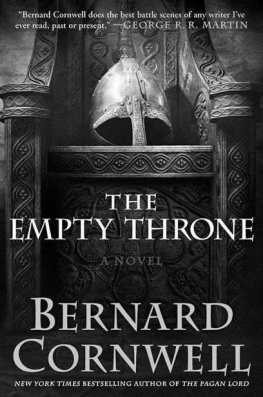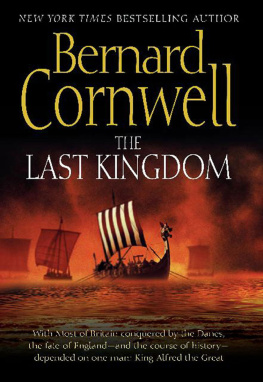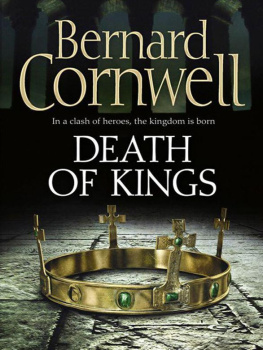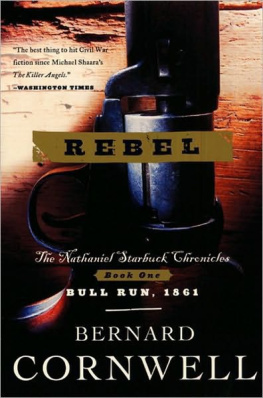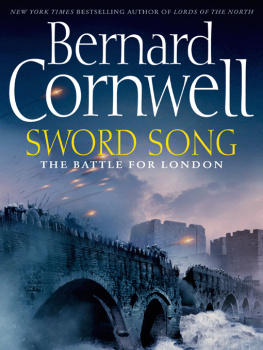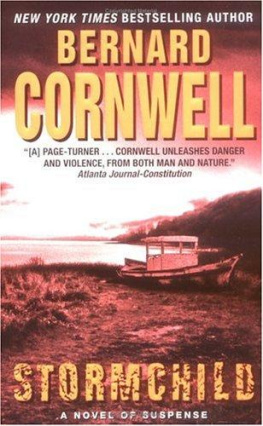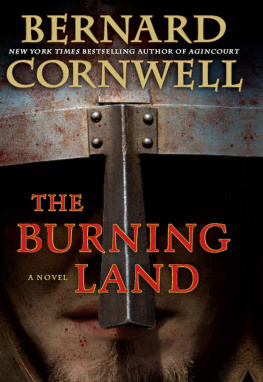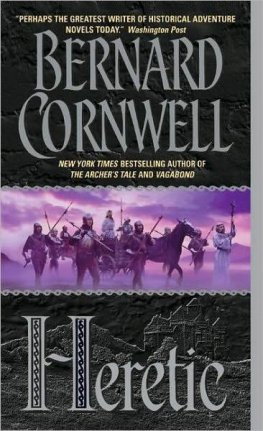Bernard Cornwell - Agincourt
Here you can read online Bernard Cornwell - Agincourt full text of the book (entire story) in english for free. Download pdf and epub, get meaning, cover and reviews about this ebook. year: 2008, publisher: HarperCollins, genre: Detective and thriller. Description of the work, (preface) as well as reviews are available. Best literature library LitArk.com created for fans of good reading and offers a wide selection of genres:
Romance novel
Science fiction
Adventure
Detective
Science
History
Home and family
Prose
Art
Politics
Computer
Non-fiction
Religion
Business
Children
Humor
Choose a favorite category and find really read worthwhile books. Enjoy immersion in the world of imagination, feel the emotions of the characters or learn something new for yourself, make an fascinating discovery.

- Book:Agincourt
- Author:
- Publisher:HarperCollins
- Genre:
- Year:2008
- Rating:4 / 5
- Favourites:Add to favourites
- Your mark:
- 80
- 1
- 2
- 3
- 4
- 5
Agincourt: summary, description and annotation
We offer to read an annotation, description, summary or preface (depends on what the author of the book "Agincourt" wrote himself). If you haven't found the necessary information about the book — write in the comments, we will try to find it.
Agincourt — read online for free the complete book (whole text) full work
Below is the text of the book, divided by pages. System saving the place of the last page read, allows you to conveniently read the book "Agincourt" online for free, without having to search again every time where you left off. Put a bookmark, and you can go to the page where you finished reading at any time.
Font size:
Interval:
Bookmark:

Agincourt
is for my granddaughter,
Esme Cornwell,
with love.
Agincourt is one of the most instantly and vividly visualized of all epic passages in English history. It is a victory of the weak over the strong, of the common soldier over the mounted knight, of resolution over bombast. It is also a story of slaughter-yard behaviour and of outright atrocity.
Sir John Keegan, The Face of Battle
there is a multitude of slain, and a great number of carcasses; and there is none end of their corpses: they stumble upon their corpses.
Nahum 3.3
On a winters day in 1413, just before Christmas, Nicholas
Saint Crispin and Saint Crispinian
The River Aisne swirled slow through a wide valley edged
The first Hook knew of the assault was the sound
Even in summer the hall of Calais Castle was chilly.
Normandy
Nick Hook could scarce believe the world held so many
It seemed to Hook that he never stopped digging in
The sow shuddered each time a gun-stone struck its sloping
Wake up, Nick! It was Thomas Evelgold bellowing at him.
You wont die here, Saint Crispinian said.
To the River of Swords
There were to be no heavy wagons taken on the
There was not one ford across the Somme, but two,
Saint Crispins Day
Dawn was cold and gray. A few spatters of rain
The gun fired, belching smoke above the left flank of
The Sire de Lanferelle spat curses. A man at his
It was a November day, sky-bright and cold, filled with

On a winters day in 1413, just before Christmas, Nicholas Hook decided to commit murder.
It was a cold day. There had been a hard frost overnight and the midday sun had failed to melt the white from the grass. There was no wind so the whole world was pale, frozen and still when Hook saw Tom Perrill in the sunken lane that led from the high woods to the mill pastures.
Nick Hook, nineteen years old, moved like a ghost. He was a forester and even on a day when the slightest footfall could sound like cracking ice he moved silently. Now he went upwind of the sunken lane where Perrill had one of Lord Slaytons draft horses harnessed to the felled trunk of an elm. Perrill was dragging the tree to the mill so he could make new blades for the water wheel. He was alone and that was unusual because Tom Perrill rarely went far from home without his brother or some other companion, and Hook had never seen Tom Perrill this far from the village without his bow slung on his shoulder.
Nick Hook stopped at the edge of the trees in a place where holly bushes hid him. He was one hundred paces from Perrill, who was cursing because the ruts in the lane had frozen hard and the great elm trunk kept catching on the jagged track and the horse was balking. Perrill had beaten the animal bloody, but the whipping had not helped and Perrill was just standing now, switch in hand, swearing at the unhappy beast.
Hook took an arrow from the bag hanging at his side and checked that it was the one he wanted. It was a broadhead, deep-tanged, with a blade designed to cut through a deers body, an arrow made to slash open arteries so that the animal would bleed to death if Hook missed the heart, though he rarely did miss. At eighteen years old he had won the three counties match, beating older archers famed across half England, and at one hundred paces he never missed.
He laid the arrow across the bowstave. He was watching Perrill because he did not need to look at the arrow or the bow. His left thumb trapped the arrow, and his right hand slightly stretched the cord so that it engaged in the small horn-reinforced nock at the arrows feathered end. He raised the stave, his eyes still on the millers eldest son.
He hauled back the cord with no apparent effort though most men who were not archers could not have pulled the bowstring halfway. He drew the cord all the way to his right ear.
Perrill had turned to stare across the mill pastures where the river was a winding streak of silver under the winter-bare willows. He was wearing boots, breeches, a jerkin, and a deerskin coat and he had no idea that his death was a few heartbeats away.
Hook released. It was a smooth release, the hemp cord leaving his thumb and two fingers without so much as a tremor.
The arrow flew true. Hook tracked the gray feathers, watching as the steel-tipped tapered ash shaft sped toward Perrills heart. He had sharpened the wedge-shaped blade and knew it would slice through deerskin as if it were cobweb.
Nick Hook hated the Perrill family, just as the Perrills hated the Hooks. The feud went back two generations, to when Tom Perrills grandfather had killed Hooks grandfather in the village tavern by stabbing him through the eye with a poker. The old Lord Slayton had declared it a fair fight and refused to punish the miller, and ever since the Hooks had tried to get revenge.
They never had. Hooks father had been kicked to death in the yearly football match and no one had ever discovered who had killed him, though everyone knew it must have been the Perrills. The ball had been kicked into the rushes beyond the manor orchard and a dozen men had chased after it, but only eleven came out. The new Lord Slayton had laughed at the idea of calling the death murder. If you hanged a man for killing in a game of football, he had said, then youll hang half England!
Hooks father had been a shepherd. He left a pregnant widow and two sons, and the widow died within two months of her husbands death as she gave birth to a stillborn daughter. She died on the feast day of Saint Nicholas, which was Nick Hooks thirteenth birthday, and his grandmother said the coincidence proved that Nick was cursed. She tried to lift the curse with her own magic. She stabbed him with an arrow, driving the point deep into his thigh, then told him to kill a deer with the arrow and the curse would go away. Hook had poached one of Lord Slaytons hinds, killing it with the bloodstained arrow, but the curse had remained. The Perrills lived and the feud went on. A fine apple tree in the garden of Hooks grandmother had died, and she insisted it had been old mother Perrill who had blighted the fruit. The Perrills always have been putrid turd-sucking bastards, his grandmother said. She put the evil eye on Tom Perrill and on his younger brother, Robert, but old mother Perrill must have used a counter-spell because neither fell ill. The two goats that Hook kept on the common disappeared, and the village reckoned it had to be wolves, but Hook knew it was the Perrills. He killed their cow in revenge, but it was not the same as killing them. Its your job to kill them, his grandmother insisted to Nick, but he had never found the opportunity. May the devil make you spit shit, she cursed him, and then take you to hell. She threw him from her home when he was sixteen. Go and starve, you bastard, she snarled. She was going mad by then and there was no arguing with her, so Nick Hook left home and might well have starved except that was the year he came first in the six villages competition, putting arrow after arrow into the distant mark.
Lord Slayton made Nick a forester, which meant he had to keep his lordships table heavy with venison. Better you kill them legally, Lord Slayton had remarked, than be hanged for poaching.
Now, on Saint Winebalds Day, just before Christmas, Nick Hook watched his arrow fly toward Tom Perrill.
Font size:
Interval:
Bookmark:
Similar books «Agincourt»
Look at similar books to Agincourt. We have selected literature similar in name and meaning in the hope of providing readers with more options to find new, interesting, not yet read works.
Discussion, reviews of the book Agincourt and just readers' own opinions. Leave your comments, write what you think about the work, its meaning or the main characters. Specify what exactly you liked and what you didn't like, and why you think so.

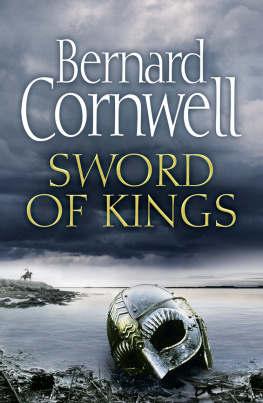

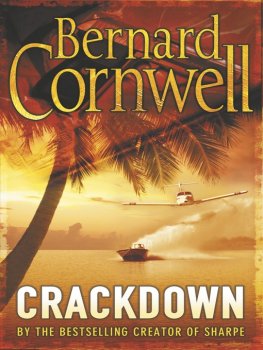
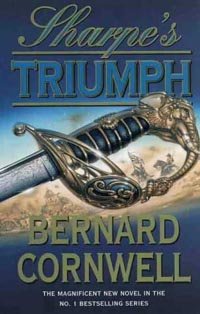
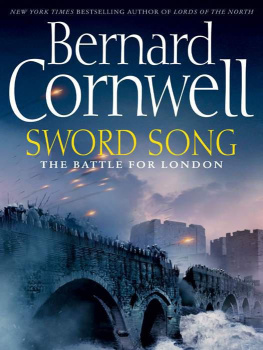
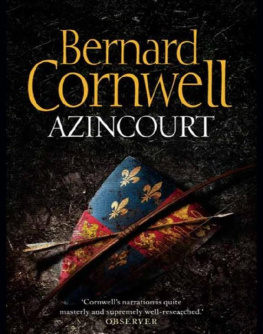
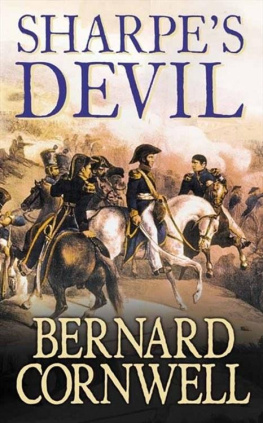
![Bernard Cornwell - The Grail Quest - The Archer’s Tale / Vagabond / Heretic [ATBC]](/uploads/posts/book/131313/thumbs/bernard-cornwell-the-grail-quest-the-archer-s.jpg)
